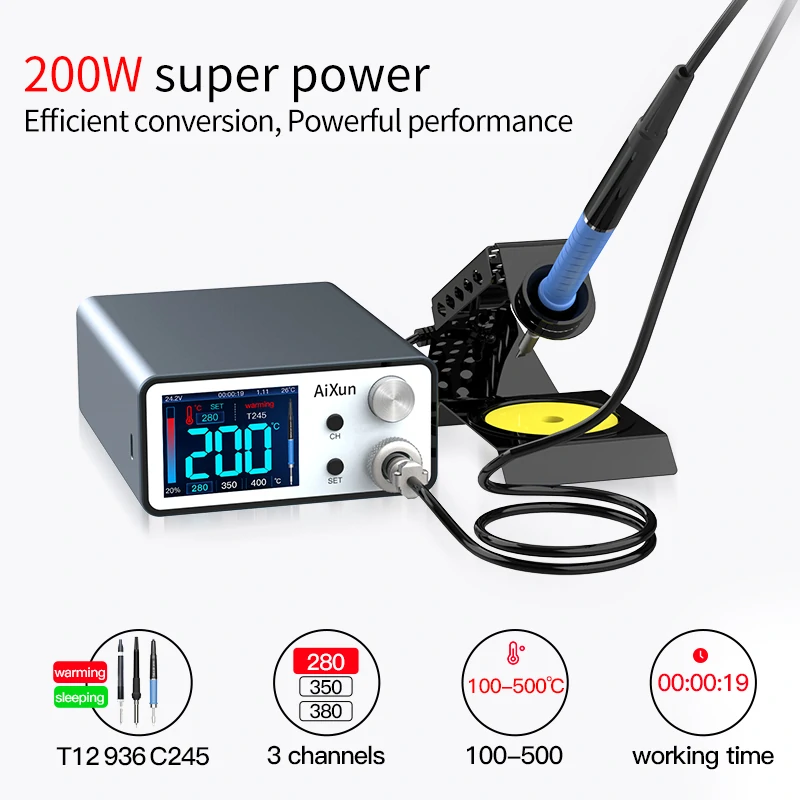
A soldering station consists of a soldering iron, a power unit, and a temperature control system. Unlike a basic soldering iron, it provides more accurate temperature control, better heat distribution, and increased safety features. It offers a stable and controlled environment for soldering tasks, ensuring quality results.

Soldering stations come with various features to enhance your soldering experience. Look for these key features when you choosing:
Temperature Control: Precise temperature control is crucial for different soldering tasks. Opt for a station that allows you to adjust and maintain the desired temperature accurately.
Heating Element: Consider the type of heating element used in the soldering iron. Ceramic heating elements are popular due to their fast heat-up time and efficient energy usage.
Tip Compatibility: Check if the device supports interchangeable tips in different shapes and sizes. Versatility in tip selection enables you to handle various soldering applications.
ESD Protection:
Choose a station with ESD protection to keep your sensitive electronic components safe from damage.
There are two common types of soldering stations:
Analog Soldering Stations: These stations feature manual temperature control through knobs or dials. They are cost-effective and suitable for basic soldering tasks.
Digital Soldering Stations: Digital stations offer precise temperature control through a digital display. They provide more accurate and consistent temperature settings, making them ideal for intricate soldering tasks.
For DIY hobbyists, a soldering station that balances affordability and functionality is recommended. Look for a station with:
Temperature Control: Ensure the station has adjustable temperature settings to accommodate different soldering needs.
Versatile Tip Selection:
Choose a station with different tips for different soldering tasks, like through-hole soldering or fixing small electronics.
Ease of Use: Consider a station with user-friendly controls and a comfortable grip for extended soldering sessions.
Before making a list of important tools for an electrical company, it is important to carefully analyze the necessary equipment. A soldering station is a necessary item for connecting wires securely and often.
Professionals in electronic repair require more advanced soldering stations to handle complex tasks. Look for a station that offers:
Precise Temperature Control: Choose a station with highly accurate temperature control for delicate and intricate soldering work.
Rapid Heat-Up Time: Consider a station that quickly reaches the desired temperature to increase efficiency and productivity.
ESD-Safe Features: Prioritize a station with built-in ESD protection to safeguard sensitive components.
Durability: Professionals often require soldering stations with sturdy construction to withstand frequent and heavy usage.
Determine Your Soldering Needs. Whether you are a DIY hobbyist or a professional in electronic repair.
Consider factors such as temperature control, tip compatibility, ESD protection, and user-friendly features when making your decision. DIY hobbyists can opt for an affordable station with versatile functionality, while professionals may require more advanced features and durability. By choosing the appropriate soldering station, you can enhance your soldering experience and achieve high-quality soldering results in your projects.
 WhatsApp
WhatsApp